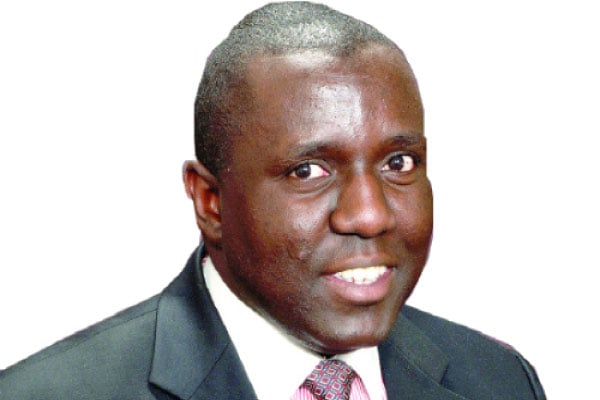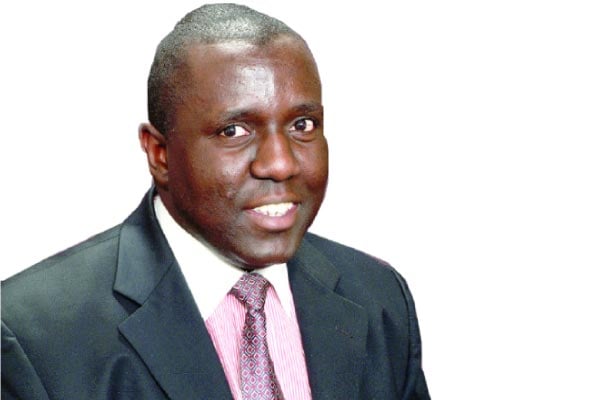Prime
Big decision on annexing central forest reserves to national game parks

Author: Mr Karoli Ssemogerere is an Attorney-at-Law and an Advocate.
What you need to know:
- As a quick fix, the government mistakenly thought by producing more sugar it would manage demand.
The world is melting into climate hell. Incidents of excess, typhoons, hurricanes, blizzards are marking disruption of the rhythm of climate and weather. The weatherman has four simple images representing, rains, sunshine, scattered showers and a windy day. In the indications and warning system, he has a few climate alerts mostly to guide navigation.
Our Meteorological Authority is putting a lot of caution by announcing weather extremities in advance. For February, they are announcing a marked hot and dry spell over more than half the country. February is planting season in many parts of the country as farmers wait for the short March-April rains.
When the rains come, they come with unflattering effects, episodes of floods, landslides. The national highway network is crumbling under the effect of poor planning, ineffective designs that fail to take into account that Uganda is trying to revert to its history as a “wetland country”, a vast density of swamps managing its internal drainage and beneath which layers of sediment are still producing considerable mineral wealth for the country in the form of black gold, oil.
It is a relief that some action is being taken to put away more acreage from the threat of unplanned exploitation by adding two big forests, Budongo and Maramagambo to Kabalega National Park and Queen Elizabeth National Park respectively.
The Maramagambo forest is nearly connected to another smaller but equally significant forest, Kashinju in Rubirizi District portions of which have been degazetted in response to population pressures.
West of Kashinju is another area that needs more protection, south of the Ishasha sector with breaktaking views of Lakes George and Edward, extending to Kanungu District. Everyone in the natural resources lobby has followed the court battles, eviction battles, rapid deforestation of Budongo Forest Reserve. Timber from this forest reserve was used to make furniture and seats of the British House of Commons.
New mapping technology and audiovisual technology formerly limited to the military can improve the monitoring of these new additions. The Kibale National Park, mostly forest, has kept Fort Portal under a completely different kind of weather from surrounding districts namely Kyenjojo and Kyegegwa where uncontrolled development is presenting near desert like conditions all the way up the Mubende-Toro plateau.
Exploitation of minerals, especially mining for gold, has seen droves of human trafficking from South Sudan, Rwanda into the districts of Bukuya and surrounding areas where people are panning for gold.
In October, this columnist mistakenly wondered whether the Ebola outbreak that reached as far as Fort Portal had been transmitted on the international border from the DRC.
I was educated by a bio-safety specialist from the Ministry of Health that it was a variant of Ebola Sudan whose last outbreak had been in 2000- the wave that killed Dr. Matthew Lukiya and the Coutinho doctors in Gulu District.
Declaring natural wildlife refuges or extending protection comes with a number of benefits. Mabira Central Forest Reserve dissolved into one big sugar plantation. As a quick fix, the government mistakenly thought by producing more sugar it would manage demand.
Most of the forests in Busoga similarly gave way for producing more sugar, delivering crushing poverty that from his own admission scared Busoga. Busoga became an electoral bellwether in 2021 on account of the crushing poverty. As rains dwindled, most of the sugar mills are operating at sub-par capacity. Low prices crushed sugarcane farmers, whose land has partly fallen into disuse. Millers are crushing immature sugarcane at 12-14 months rather than 18 months. In December, the price of sugar rose sharply from Shs3800 toShs 5300.
The answer to protecting the environment in a rapidly growing population is to accept there will never be enough land for fragmented use, rather it is more planning and concentration of population to occupy less land more productively.
Tourism is one economic activity with a wider income distribution and these benefits should come to Rubirizi, Kasese, Masindi and Buliisa districts.
Mr Karoli Ssemogerere is an Attorney-At-Law and an Advocate. [email protected]



